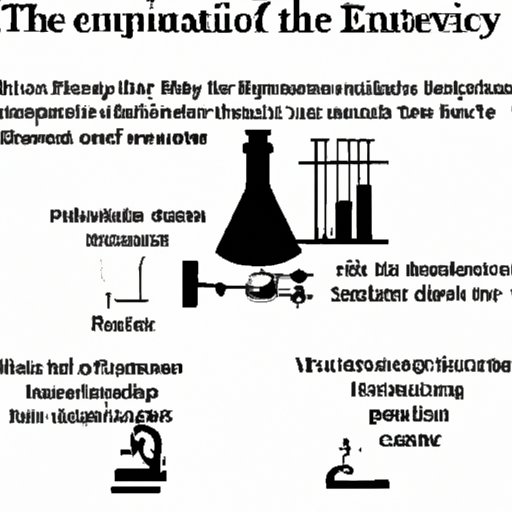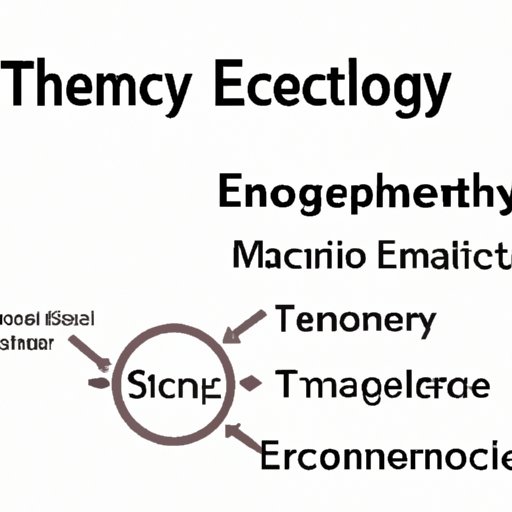Introduction
Empirical science is a type of scientific method that relies on observation and experimentation to acquire knowledge. It involves collecting data, measuring variables, and drawing conclusions based on these observations. The goal of empirical science is to gain new insights into how the world works, as well as to develop theories that can be tested and verified. This article will explore what empirical science is, its historical applications, and how it can be used in everyday life.
Overview of Empirical Science
Empirical science is based on gathering evidence through direct observation, experimentation, and measurement. It is a systematic approach to understanding the world around us by collecting data and testing hypotheses. Scientists use empirical evidence to draw conclusions about the world and form theories that can be tested and verified. There are several different types of empirical science, including physical sciences, biology, psychology, and social sciences.
Benefits and Challenges of Empirical Science
The main benefit of empirical science is that it provides reliable and objective evidence for understanding the world. By using scientific methods and replicable experiments, empirical science allows us to draw conclusions that are based on fact rather than opinion. Additionally, empirical science helps to eliminate bias and personal opinions from research, as the evidence gathered is based solely on measurable facts. However, there are also some challenges associated with empirical science. One challenge is that it can be difficult to measure certain variables, as some aspects of the world are too complex or abstract to quantify. Additionally, there can be ethical concerns when conducting experiments, such as when animals or humans are used in the process.

Historical Examples of Empirical Science in Practice
Empirical science has been used since ancient times. In Ancient Greece, philosophers such as Aristotle used empirical evidence to support their theories about the natural world. During the Scientific Revolution of the 16th and 17th centuries, scientists such as Galileo and Newton used empirical evidence to develop their theories about gravity and motion. In recent years, empirical science has continued to be used to make discoveries about the world. For example, the Human Genome Project used empirical evidence to map out the human genome and uncover new information about genetics.

The Role of Theory in Empirical Science
Theory plays an important role in empirical science. A theory is an explanation of how the world works based on evidence and observation. It is not a statement of fact, but rather a set of ideas that can be tested and verified. In empirical science, theories help to explain the evidence and provide insight into how the world works. They can also be used to develop new hypotheses and guide future experiments.

Recent Advances in Empirical Science
In recent years, there have been many advances in empirical science. New technologies such as microscopes and telescopes have allowed scientists to observe the world in more detail. Additionally, improved methodologies such as double-blind studies have helped to reduce bias and increase accuracy. These advances have enabled scientists to make new discoveries and develop more accurate theories about the world.
Applying Empirical Science in Everyday Life
Empirical science can be applied in everyday life. For example, medical professionals use empirical evidence to diagnose and treat patients. Businesses use empirical data to make decisions and understand customer behavior. And educators use empirical evidence to develop lesson plans and evaluate student progress. There are many practical examples of how empirical science can be used in everyday life. Here are a few tips for success:
- Gather data from multiple sources.
- Analyze the data to identify patterns and correlations.
- Test your hypothesis with replicable experiments.
- Draw conclusions based on the evidence.
Conclusion
In conclusion, empirical science is a type of scientific method that relies on observation and experimentation to acquire knowledge. It has been used for centuries to make discoveries about the world and develop theories. The benefits of empirical science include providing reliable and objective evidence, while the challenges include difficulty measuring certain variables and ethical concerns. Additionally, advances in technology and methodology have enabled scientists to make new discoveries and apply empirical science in everyday life. By understanding what empirical science is and how it works, we can use it to better understand the world around us.
(Note: Is this article not meeting your expectations? Do you have knowledge or insights to share? Unlock new opportunities and expand your reach by joining our authors team. Click Registration to join us and share your expertise with our readers.)
